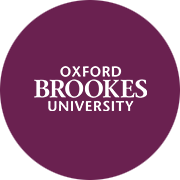
Recently attending an M25 academic libraries event (university libraries within the M25, and somewhat beyond in the case of some of us such as Brookes and Reading!) was an opportunity to catch up with ex Brookes colleagues and find out more on the above frameworks.
The KEF: Knowledge Exchange Framework is designed by the Government to help universities to focus on how best to improve communication with the public, government and business. Although speakers highlighted this was not specifically a library focused framework there could be opportunities for us to promote some of our services and events that communicate to a wider audience (eg the upcoming lecture on the ‘Science and Business of spirits and beer‘ from Professor Katherine Smart who was instrumental, along with our Director of Library Service Dr Helen Workman, in setting up our National Brewing Library at Oxford Brookes).
The REF: Research Excellence Framework is a system for assessing the quality of UK higher education research. David Seeney (Executive Chair Research England) gave us the message that all was on track for the 2021 REF, and the previous REF (2014) and work on Open Access (OA) since building up to 2021, has ensured 54% of UK academic output is OA compliant. For more information on OA and Scholarly Communications generally please take a look at our Scholarly Communications Team’s excellent blog: Brookes OA.
Onto the TEF! This is the Teaching Excellence Framework, another UK Government framework which aims to ‘assess excellence in teaching at universities and colleges, and how well they ensure excellent outcomes for their students in terms of graduate-level employment or further study.’ Bronze, silver and gold were awarded to universities in the first TEF in 2017 as whole institution assessments (Brookes got silver). It looks like for the upcoming TEF (probably 2020) the framework will operate at subject level. We can’t be sure of this due to current political uncertainty(!), and may have to undertake another whole institution assessment. There are many ways the strengths of our library service at Brookes can be reflected in the TEF as our work scaffolds so much of students’ learning journeys. For example we provide key hard and electronic resources (and can provide usage metrics), vital learning spaces including different zones for different learning needs (from group work to silent study), multiple information literacy support points (phone, email, live chat and enquiry desks), and in-depth subject based information and digital literacy support from our dedicated Academic Liaison Librarians. We will be working closely with academic colleagues to ensure our successful narratives join with the course TEF submissions as Brookes aims for gold!
– Robert Curry, Associate Director for Learning Resources (Academic)
e-mail: rcurry@brookes.ac.uk
Have you read?
Curry, R. & Farmilo, V., (2019) ‘A defence of subject specialism in academic librarianship‘,
SCONUL Focus 71
Curry, R., (2017) “Makerspaces: A beneficial new service for Academic Libraries?“, Library Review, Vol. 66 Issue: 4/5, doi: 10.1108/LR-09-2016-0081

